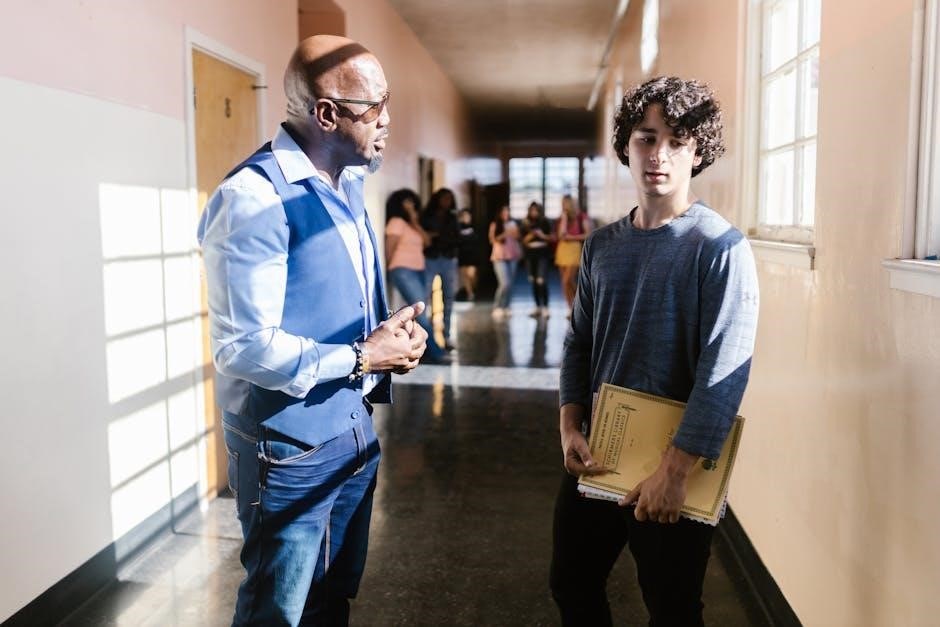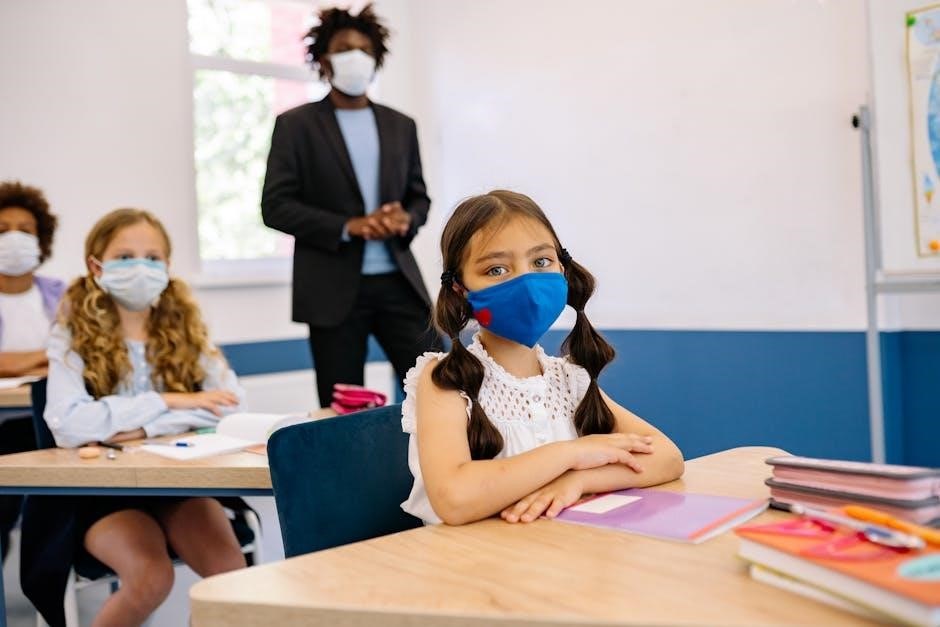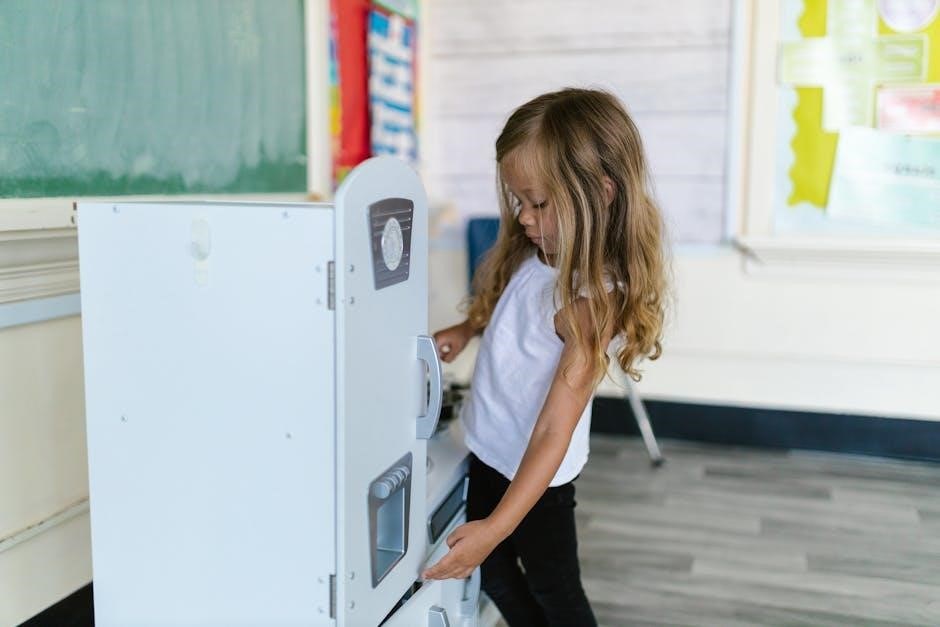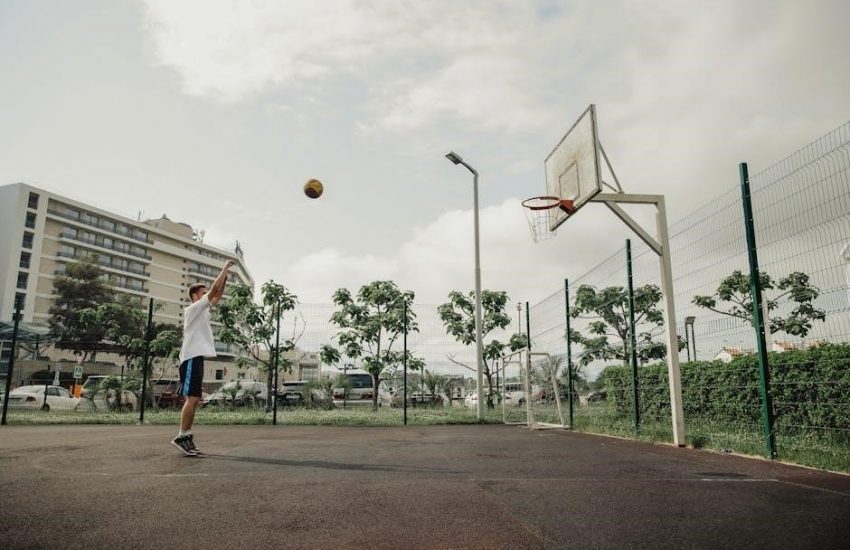roles and responsibilities of a special education teacher pdf
A special education teacher works with students with diverse needs‚ creating personalized learning plans and using specialized techniques to ensure academic and personal growth. This role requires patience‚ adaptability‚ and a commitment to fostering inclusive education.

Key Responsibilities
Special education teachers create individualized plans‚ employ diverse instructional strategies‚ assess progress‚ and collaborate with professionals to meet students’ unique needs‚ ensuring tailored support for academic and personal development.

Developing and Implementing Individualized Education Programs (IEPs)
A critical responsibility of a special education teacher is developing and implementing Individualized Education Programs (IEPs). This process begins with assessing a student’s unique needs‚ strengths‚ and goals‚ often in collaboration with parents‚ general educators‚ and other professionals. The IEP outlines specific objectives‚ services‚ and accommodations tailored to the student’s requirements. Teachers must ensure that the IEP is aligned with state and federal regulations‚ such as the Individuals with Disabilities Education Act (IDEA). Once developed‚ the teacher is responsible for implementing the plan‚ which may involve adapting curricula‚ using specialized instructional strategies‚ and monitoring progress. Regular assessments and updates to the IEP are necessary to reflect the student’s growth and changing needs. Effective communication with parents and other stakeholders is essential to ensure the IEP is implemented successfully and that the student receives the support they need to thrive academically and socially.
Collaborating with General Education Teachers and Professionals
Collaboration is a cornerstone of a special education teacher’s role‚ requiring teamwork with general education teachers‚ administrators‚ and other professionals. This partnership ensures students receive comprehensive support by aligning IEP goals with general curriculum standards. Special education teachers often co-teach in inclusive classrooms‚ sharing expertise to adapt instruction for diverse learners. They also contribute to professional development‚ providing strategies for differentiating instruction. Additionally‚ collaboration involves communicating with related service providers‚ such as speech therapists or counselors‚ to integrate their services into the student’s educational plan. By fostering open dialogue and shared responsibilities‚ special education teachers help create a cohesive educational environment. This teamwork not only enhances student outcomes but also strengthens the overall school community‚ ensuring that every student has access to the resources and support they need to succeed. Effective collaboration is essential for meeting the diverse needs of students and aligns with legal and ethical standards in education.
Assessing and Monitoring Student Progress
Assessing and monitoring student progress is a critical responsibility of special education teachers‚ ensuring that individualized education programs (IEPs) are effective and aligned with student needs. Teachers use a variety of assessment tools‚ including informal observations‚ standardized tests‚ and progress monitoring software‚ to track academic‚ social‚ and behavioral growth. Regular data collection helps identify areas where students may need additional support or enrichment. This information is used to adjust instructional strategies and update IEP goals as needed. Special education teachers also collaborate with other professionals‚ such as school psychologists and speech therapists‚ to gather a comprehensive understanding of student progress. By maintaining detailed records and communicating regularly with parents and guardians‚ teachers ensure accountability and transparency in student development. Monitoring progress not only guides instruction but also helps measure the effectiveness of interventions‚ ultimately supporting students in achieving their full potential. This process is both legally and ethically essential in special education.
Instructional Strategies for Diverse Learners
Special education teachers employ a variety of instructional strategies to meet the unique needs of diverse learners. These strategies include differentiated instruction‚ which tailors lessons to individual learning styles‚ and the use of assistive technologies to enhance accessibility. Universal Design for Learning (UDL) is another key approach‚ providing multiple ways for students to engage with content‚ express their knowledge‚ and be motivated. Teachers also incorporate visual aids‚ hands-on activities‚ and peer-to-peer learning to cater to different learning preferences. Additionally‚ they use behavior intervention plans and positive reinforcement techniques to support students with emotional or behavioral challenges. The goal is to create an inclusive and supportive learning environment that fosters academic‚ social‚ and emotional growth for all students‚ regardless of their abilities or learning styles.
By staying updated on evidence-based practices and adapting their methods‚ special education teachers ensure that their instructional strategies are effective and equitable for all learners. This adaptability is crucial in addressing the diverse needs of students with varying abilities and learning challenges‚ ensuring they have the tools and support necessary to succeed.

Support and Collaboration
Special education teachers collaborate with general educators and specialists‚ providing support to students with diverse needs. They address behavioral and emotional challenges‚ working together to create inclusive environments and ensure students receive comprehensive assistance.
Providing Behavioral and Emotional Support
Special education teachers play a crucial role in providing behavioral and emotional support to students with diverse needs. They create safe and inclusive environments‚ helping students manage challenges like anxiety‚ stress‚ or hyperactivity. By implementing positive behavioral interventions and strategies‚ teachers address specific behaviors‚ fostering self-regulation and emotional resilience. They also collaborate with counselors and psychologists to develop tailored support plans‚ ensuring students receive comprehensive care. Additionally‚ teachers help students build social skills‚ encouraging positive interactions with peers. This support extends to families‚ offering resources and strategies to continue emotional development at home. By addressing behavioral and emotional needs‚ special education teachers empower students to thrive academically and socially‚ laying the foundation for lifelong well-being and success.
Collaborating with Parents and Guardians
Collaborating with parents and guardians is a cornerstone of a special education teacher’s role. They work closely with families to understand students’ unique needs‚ ensuring consistency between home and school. Regular communication through meetings‚ progress reports‚ and informal updates keeps parents informed and involved. Teachers actively involve parents in developing and implementing Individualized Education Programs (IEPs)‚ ensuring their insights and goals are integrated. By sharing strategies and resources‚ teachers empower parents to support their child’s learning and development. This partnership fosters a supportive environment‚ helping students achieve their full potential. Additionally‚ teachers provide emotional support to families‚ addressing concerns and connecting them with community resources. This collaborative approach ensures a unified effort in the student’s education and well-being‚ building trust and reinforcing the importance of teamwork in special education.

Legal and Ethical Considerations
Special education teachers must navigate a complex landscape of legal and ethical responsibilities. They are required to comply with federal and state laws‚ such as the Individuals with Disabilities Education Act (IDEA) and Section 504 of the Rehabilitation Act‚ ensuring students receive a free and appropriate public education (FAPE). Confidentiality and privacy are paramount‚ as teachers handle sensitive student information protected by the Family Educational Rights and Privacy Act (FERPA). Ethical practices‚ such as fairness‚ respect‚ and accountability‚ guide their interactions with students‚ families‚ and colleagues. Teachers must also adhere to professional standards set by licensing bodies and school districts. Failure to meet these legal and ethical obligations can result in legal consequences‚ damage to professional reputation‚ or harm to student well-being. Staying informed about legal updates and engaging in ethical decision-making are essential to fulfilling their duties responsibly and effectively.

Professional Development and Continuous Improvement
Professional development is crucial for special education teachers to stay updated on best practices‚ research‚ and technologies. They engage in workshops‚ conferences‚ and online courses to enhance their skills in areas like behavioral management‚ assistive technologies‚ and inclusive education. Collaboration with colleagues and participation in professional organizations further enrich their expertise. Teachers are encouraged to pursue advanced certifications or higher education to deepen their knowledge. Continuous improvement involves reflecting on teaching practices‚ seeking feedback‚ and adapting strategies to meet student needs. Staying informed about educational reforms and legal updates ensures they provide high-quality‚ compliant instruction. By committing to lifelong learning‚ special education teachers can better support diverse learners and contribute to the evolution of special education. This dedication fosters a culture of excellence‚ innovation‚ and student-centered care in educational settings.


